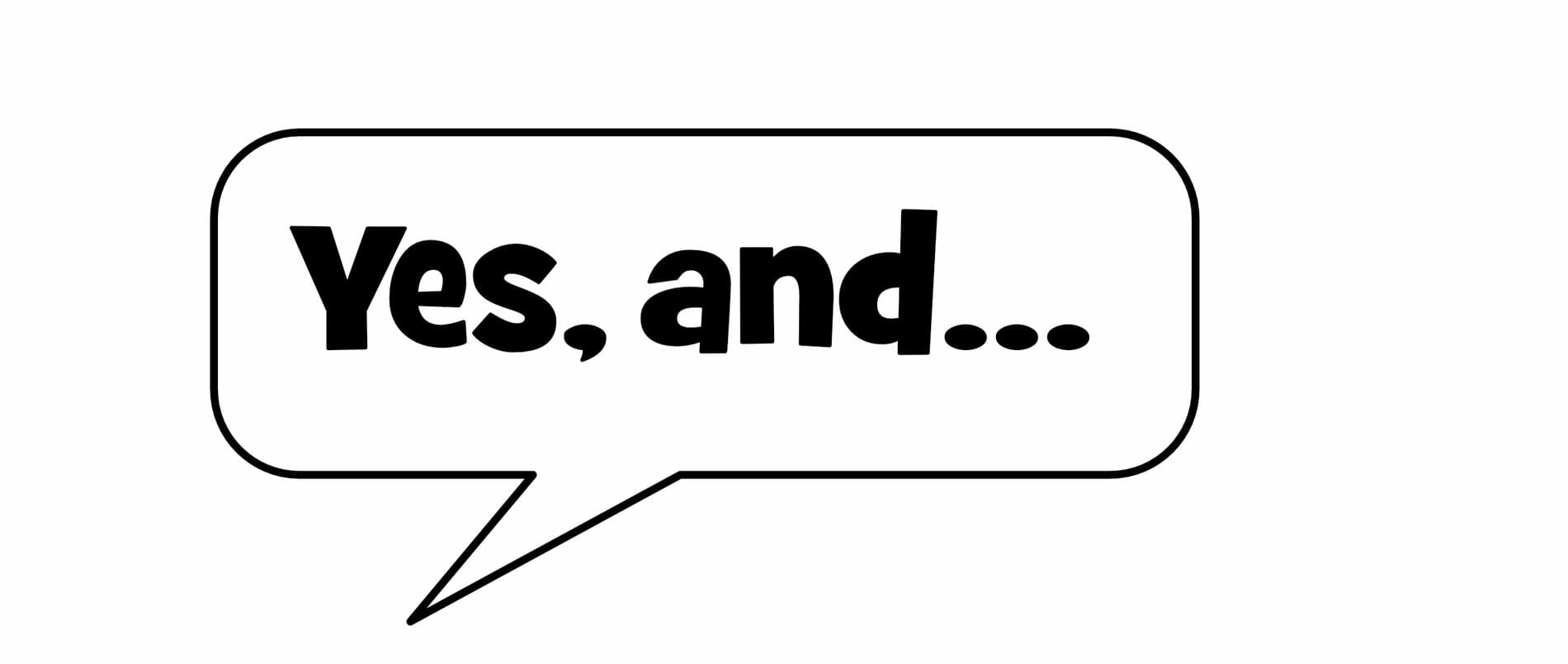Years ago when I was learning how to facilitate meetings, a colleague, Bob, gave me some feedback by asking me, “Do you realize how often you use the word, ‘but’?” He told me that almost every time I used “but” I was dismissing the person who made the comment preceding it and little by little I was shutting the whole group down.
That one single three-letter word sneaks into our conversations and shuts down productivity, creativity, and innovation. It deteriorates trust. Most of us use it unconsciously, unaware of how we’re stifling positive interaction. When we follow up someone’s comment with a sentence beginning with ‘but,’ we’re basically denying what he or she has said. This usually shuts the person down and subtly introduces a negative vibe that can begin to grow. Sometimes the word is even more stealthy when preceded by “yes,” as in “Yeah, but…” This creates an initial positive expectation about what’s to follow and smoothes the edges on the negation of “but” and the denial sneaks in the back door.
Bob and I talked later and he helped me identify the source of my frequent use of the word. I realized that it came from my insecurity as a facilitator and my belief that the person leading the meeting needed to be the expert. I would “correct” the participants who weren’t experts, because that was my role. If I wasn’t the expert, what good was I? It was rooted in my fear of not being of value. It was an unconscious strategy to manage my anxiety.
Bob suggested I use another powerful little three-letter word: “and,” which is a generative bridge between the previous speaker’s comment and whatever it is you have to add. Stimulated by a person’s comment you can build on it by saying, “Yes, and…” Bob awakened me to this small, yet big habit, and I’m forever grateful to him.
The most obvious and visceral experience I had with the concept of “Yes, and…” came during the five years I performed improvisational comedy (improv). I recommend taking a class in improv because it’s a profound laboratory to expose the limiting ways we try to control the world around us. Improv is a team-driven performance art. The team gets a suggestion from the audience and then they begin to spontaneously build a skit. Performers jump onto the stage and anyone can offer the first line.
When you’re beginning to learn improv the need to control is amplified. I remember jumping on stage after someone in the audience suggested that the location for our scene was a sidewalk. My scene partner got down on his hands and knees, pretending to smooth out the floor. He looked at me and said, “Hey! Give me a hand here. I’m making a sidewalk out of whipped cream!” To my mind this made no sense, and it was totally not where I wanted to go with the scene. So what did I do? I answered him with, “You can’t make a sidewalk out of whipped cream,” and the scene slowly ground to a painful death – in front of an audience. Ouch.
The pain of embarrassment in front of an audience created the proverbial “teachable moment” for me and that’s when I was reminded, once again, of the power of “yes, and…” What fun we would have had had my response been, “A whipped cream sidewalk! That is so awesome. I’ve got a jar of maraschino cherries!” I seriously recommend improv as a practice for learning more effective ways to manage your anxiety over not being in control.
What’s most important here is the spirit of “Yes, and…” Saying “Yes, and…” all the time can get old and sound really silly, if not downright contrived. The idea is to cultivate a spirit of positive upward creation. And a word of caution: I’ve seen people use “Yes, and…” to manipulate conversations. They say “Yes, and…” but their comment is really a, “Yeah, but…” Watch out for this.
Just imagine how this would impact a team. When other team members support and build upon each other’s ideas you trust each other, knowing that what you offer will not be ridiculed or dismissed. You know that your ideas will be heard, considered and made stronger. Now imagine if an entire organization did this. Cross-functional teams, who usually suffer from competing agendas, would begin to support one another and the value of diverse opinions coming from different points of view in the organization begin to fuel powerful creativity.
Using “but” is not always a bad thing and this is not a manifesto for striking the word from your vocabulary. It also doesn’t mean that critical thinking – questioning and debating – should be abandoned in favor of a naïve Pollyanna attempt to be blindly positive, which can be equally as destructive as “Yeah, but…”
Be conscious of whether your use of the word “but” will move things forward or shut things down. No one has all the answers in our complex world. We need to learn to collaborate in order to come up with new products and services and using “Yes, and…” can be a little tool in your innovation toolbox.

